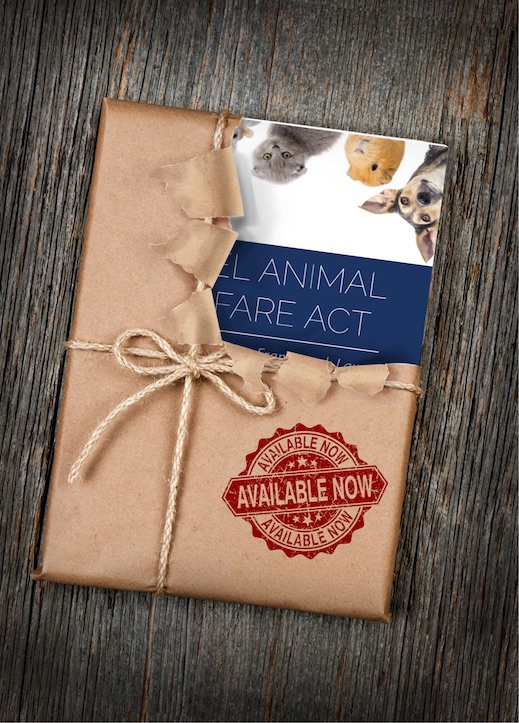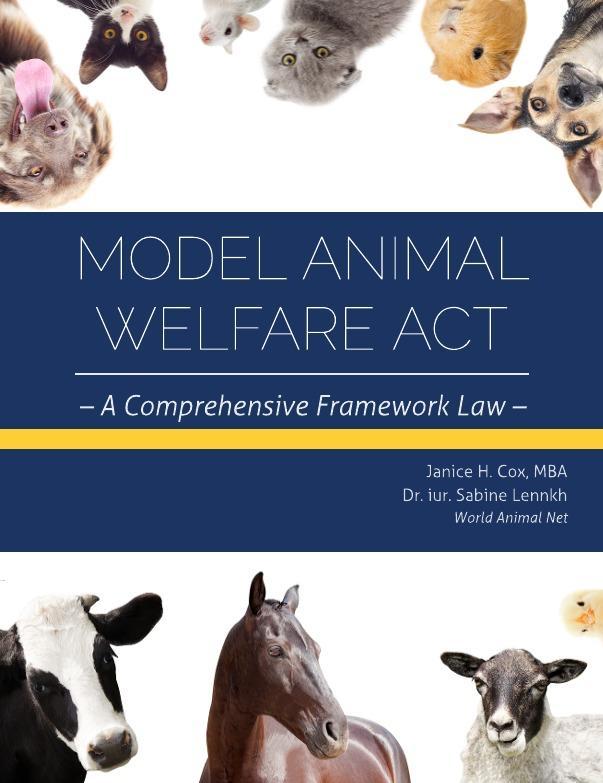
Ethical Principles
This Model Animal Welfare Act will be based on the concept of a developing ethic of care and respect for animals throughout society; in terms of both practical care and protection of animals, and humane attitudes. This is considered an ethical imperative given present knowledge that the animals who share our world are living and sentient beings with an intrinsic value; and biologically determined natures, instincts and needs.
The main reasons for introducing animal welfare legislation should be grounded on this ethical approach. This means recognising and appreciating the need for reverence for life, and comprehensive practical care and protection. In cases where these ethical prerequisites are subjected to review – for example, in order to take account of the latest scientific evidence and/or important societal and economic needs – it is important that the authorities are clear about any potential impact on animal welfare (including relevant international and regional obligations), and are able to document any subsequent decision to override animal welfare considerations.
The lives of humans affect those of our fellow animals – both directly and indirectly – in many different ways. We know that animals experience pain and suffering, and that they have the potential to experience states of well-being. We also know that they have needs, interests and emotions which are important to them. Our actions can influence an animal’s physical and psychological well-being; integrity and dignity as a creature; freedom; and even its life. Thus humans have a clear moral duty to provide for the welfare, and to protect the lives of other animals.
Animal welfare goes beyond the conservation of a species, as it includes care for the well-being of each individual animal in its own right. This is why the objective purpose and specific function of this Act is to protect all animals; meaning every animal as an individual without distinction. The single most important consideration in drafting any animal welfare law is its scope, and this Model AWA is no exception. As a forward-looking model, the authors have the responsibility to make this scope as far-reaching as possible. Yet we are hampered by the current state of science on the ‘sentience’ of individual animal species. We tend towards the view put forward in the 'The Cambridge Declaration on Consciousness' proclaimed on 7 July 2012, that many non-human animals share consciousness with humans. We also feel that as science progresses, far more animals will be shown to be sentient than has been imagined. In reality, all animals may well be sentient, but this will be difficult, if not impossible, to prove categorically. Thus, whilst it appears practical to restrict the scope of this Model AWA to sentient animals, we do not feel that this would do justice to the animals, as it will inevitably leave many sentient beings outside its scope and protection (whilst science plays ‘catch-up’ with actuality). Although the ‘precautionary principle’ can be applied theory, this is difficult to get right in practice (especially in enforcement and when needing proof in a court of law). We have, therefore, decided to include all animals within the scope of this Model AWA, but to grant particular emphasis and special care on sentient animals by focussing the sanctions (see Chapter 6) on sentient animals. (See also Section 2 and Section 4 of the Model AWA, plus corresponding Explanatory Notes).

Objectives and Targets
The introduction of modern animal welfare legislation enables a country to align its laws to international levels, including the incorporation of international and regional standards and provisions, ensuring international acceptance and regard. This can even present the opportunity to establish a new benchmark by realising a distinct and far-reaching improvement and advancement in the field of animal welfare.
An animal welfare law also provides an opportunity to prevent acts of animal cruelty and abuse, which diminish humans and can contribute to a violent and aggressive society. Indeed, a commitment to move away from animal cruelty to protect animal welfare is a statement reflecting the moral, cultural and social integrity and maturity of a nation and its people.
The proposal submitted here is designed as a precedent-setting framework law on a national level, giving the concrete outline of the statute which then will eventually find its substantive realisation on the tier of secondary (or so-called delegated or subordinate) legislation [and, as appropriate, codes of conduct and guidance]. In this manner, the law itself will contain general principles and ‘core obligations’. This will ensure comprehensive legislation, with a coherent and consistent approach to animal welfare across all sectors. It will also ensure that animal welfare structures and general principles apply whilst detailed secondary legislation [and, as appropriate, codes of conduct and guidance] are being elaborated.
As stated above, in regard to secondary legislation it is recommended that regulations be used as the main means of placing these principles into practice for each specific area of animal use/concern. In addition to the power to introduce these detailed regulations, the individual sections will vest the Ministry or the competent Administration Authority (including Municipalities, where appropriate) with the warrant to issue codes of conduct and guidance to either regulate certain topics and areas of the relevant subject, set specific standards, or provide more detailed guidance for users and/or enforcement officers. Any secondary legislation, as well as codes and guidance, has to be drafted in consistency with the Act. This will avoid a proliferation of statutes, and provide a flexible approach whereby additional by-laws can be elaborated which complement and supplement the precepts. In this way the authorities can make amendments as opportune – for example, to take account of new scientific findings; changing societal attitudes and values; or the addition of international or regional standards or provisions which are of benefit to animals and need to be incorporated into national law. It will also make it possible to react swiftly to any new animal welfare challenges that might arise.
The moral values of a nation are supposed to be reflected in its legislation. However, it is recognised that in some countries the importance of animal welfare may not yet be ingrained in society. Moreover, improvement is needed even in countries where animal welfare is more highly prioritised. For these reasons, the ultimate ambition of this Act is to change this situation over time; through proactive measures to change the mind-set and ethic in the broad population to appreciate animals as sentient fellow-beings deserving of respect and care. Indeed, this change is needed to ensure the co-operation and support of the community for this new regulatory system providing for the welfare of animals.
Inclusion of animal welfare in the Criminal Code or Penal Code of a country might be considered a more impressive deterrent than a dedicated Animal Welfare Act. However, including all criminal offences against animals in one single body of law has a number of clear advantages. One dedicated Act will be comprehensive, compact and user-friendly. This is important as animal welfare legislation is not only addressed at the legal profession and government agencies, but also targets the general public as its main audience: They will have to conform to the law and thus will need to explicitly understand what is expected of them in this context.
This approach is in particular an option if no substantial animal welfare and protection provisions have already been introduced in a country, thus embedding new legal measures in this context might allow for a consolidated compendium of laws. If already a complex and detailed system of statutes including those with pertinent animal welfare relevance is in place, the Model AWA is aiming at complementing, supporting and strengthening the existing codes and regulations including any penalty schemes, especially in jurisdictions which permit the co-existence of penalties in various codes, i.e. for instance the animal welfare and penal codes. In this case usually a subsidiary clause would come into effect to warrant the ne bis in idem principle.




